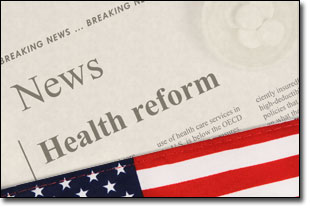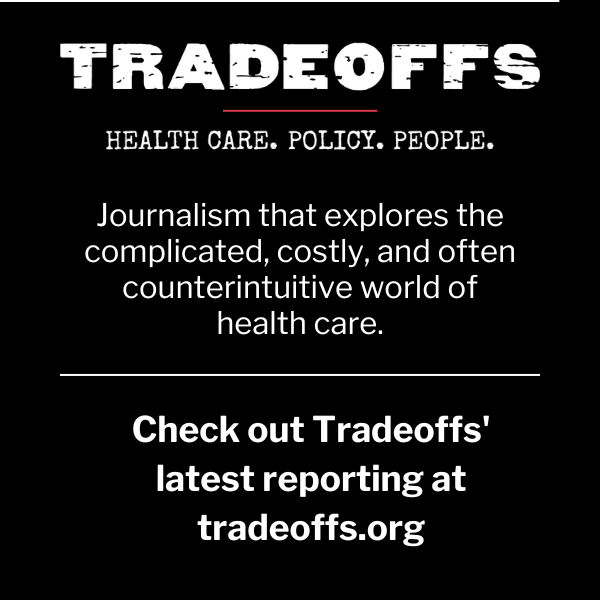Editor’s note: Today we introduce Joanne Kenen as AHCJ’s Health Policy topic leader. She will be writing blog posts, tip sheets, articles and gathering resources to help our members cover the complex implementation of Health Policy.
Health Policy, to say the least, is confusing. The Kaiser Family Foundation had a great “data note” recently establishing just how little the American people know about reform. (The lack of knowledge apparently did not correlate with the intensity of political feeling).
So, how did people do? Fewer than one in 100 got all 10 questions right. Only a quarter scored seven or more right – a “C” or above if we were grading.
A third got four or fewer right (F minus, minus?) Two percent didn’t get one single question right. Most were in the low-performing middle, correctly answering 4 to 6.
What killed me (no pun intended) is that only 45 percent knew – after all the zillions of words we’ve written about this – that there are no government panels making life-and-death decisions for older Americans. Can’t you see the tabloid headline: “Zombie Death Panels Refuse To Die.”
Sorting out the details
Why should we, as journalists, care about this non-knowledge – aside from the fact that it’s just depressing? I think it’s a two-fold challenge.
The first challenge is internal. Many health care reporters are juggling several health and science or health and domestic policy beats, or so immersed in local coverage that it’s hard to find time to sort out the 8 gazillion arcane details of the Patient Protection and Affordable Care Act . That’s where I come in – AHCJ has asked me to be its – or rather your – “Health Policy topic leader.” My task: help you get unconfused. I’ve done one tip sheet on the one-year mark of ACA (which is March 23), with more to come.
The second challenge is external – or maybe existential. We have all reported and reported and reported on this. Some of our work has been very good. But it hasn’t gotten through the noise and buzz and screeching and tweeting of the current media world – or through editors pressing us to write about who is up and who is down politically, rather than about the substance. I don’t have any easy answers on how to fix that – how to make sure that our readers/watchers/listeners (and sometimes our editors) understand and value our credibility – and find time to pay attention.
Find creative ways to tell the story
One tool is to translate the policy locally and sometimes narratively. I am always looking for fresh ways to tell readers about health care, in ways they can come to it anew and understand. A couple of years ago, just before I left Reuters, I did a story about how many college kids were studying health policy – a field that barely existed during the last big national debate in the Clinton years. Another time I wrote a magazine feature about a family with three generations of doctors (plus a 5-year-old carrying his dad’s black bag and talking about aortas). Without loading a lot of overt policy in the piece – which would not have flown in Washingtonian Magazine – I was able to illustrate how this family’s experiences had spanned a half-century of changes in American medicine. If you do stories like that (which are fun by the way) or see great work by colleagues, let me know about them. I’ll be writing for this blog regularly and will share some of your creative approaches.
Another tool – and obligation – is to just understand the policy and the politics and the changing health care system so well that we can break it down and make it clear for our readers. There are a lot of resources out there. I’ll try to bring some of them to your attention, and when you find useful ones, bring them to mine by sending e-mail to joanne@healthjournalism.org.
The sheer amount of resources – issue briefs, timelines, webcasts, transcripts – can be daunting but having so much at our online fingertips is still way easier than it was 15 years ago, when we had to go to events in person, collect stacks of documents, remember where we filed the documents, and then frantically search through the pages when we needed a fact on deadline (unless NPR’s Julie Rovner was within shouting distance of my desk in the Senate press gallery, then I could just ask her … )
Here’s one way to start. Kaiser followed up by putting that pop quiz online. Test yourself. (Or test your editor? Or how about your spouse or partner – unless you really don’t want confirmation of how well they do or do not listen?) And maybe then think about what, if anything, confused you. Or them. And try to end the confusion for someone else.
About me

Joanne Kenen
For those of you who don’t know me – I’ve covered both the politics and policy of health in Washington, D.C., for years, and written about it for numerous kinds of publications. I have been a health-focused Congressional correspondent for Reuters, a Kaiser Media Fellow writing about palliative care, aging and end of life in 2007, a think-tank based blogger, and I have freelanced for everyone from Slate to the AARP to Health Affairs.
I have written about both the cost/coverage side of things, and the delivery system changes, particularly about chronic disease and aging. I’ll be in Philly for Health Journalism 2011, AHCJ’s annual conference, so say hello, and feel free to email me or comment below on how I can help you.







